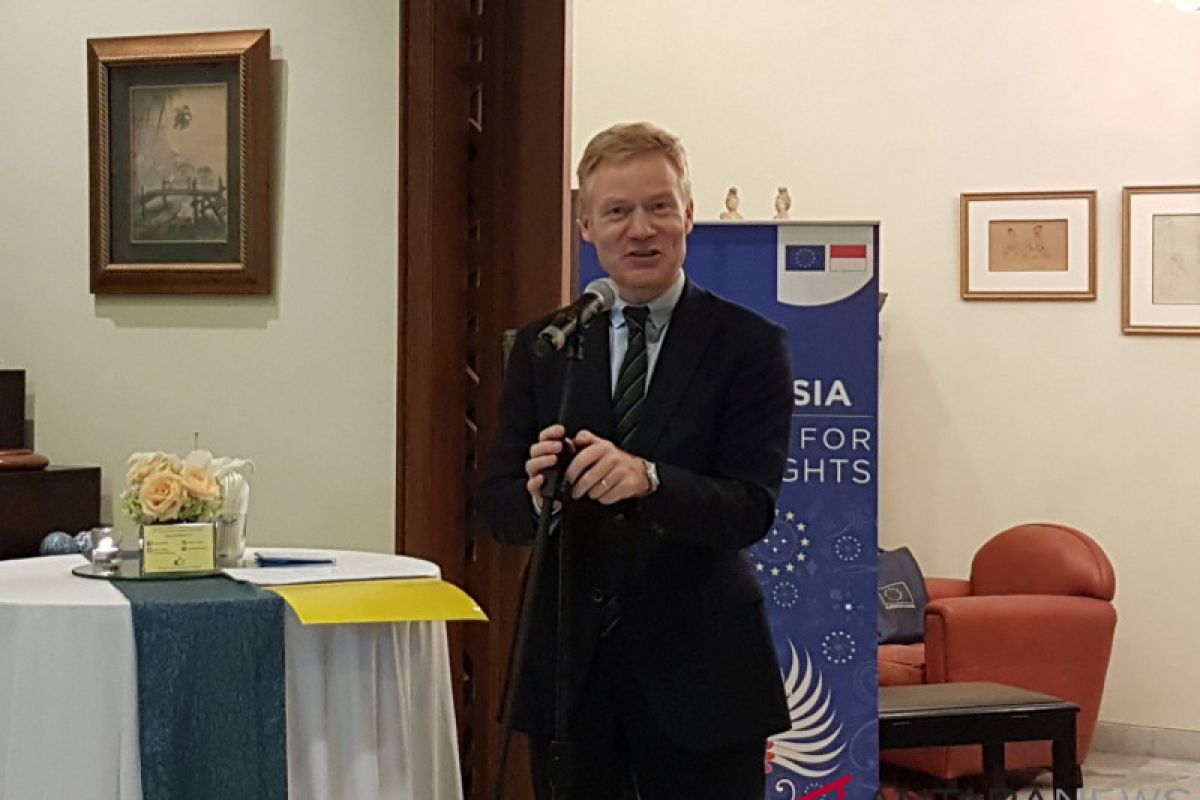Several policies set by the Indonesian government to realize this target include a moratorium on palm oil plantation permits, reviews on Indonesian Sustainable Palm Oil (ISPO) certification, palm oil replantation, intensification of plantation lands, and building capacity of independent small farmers.
"The key now is to upgrade ISPO standards to the global level, so they can be acknowledged by consumers," EU Ambassador to Indonesia Vincent Guerend stated at a media meeting here, Tuesday (Dec 4) night.
European consumers, harboring concerns regarding the industry having major impacts on the environment and global warming, need to be convinced that the ISPO certification is credible enough to prevent deforestation and biodiversity degradation.
The principles of sustainability are important for European consumers, who are the second-largest importer of Indonesian palm oil after India.
Guerend pointed out that palm oil consumption would remain high, as the commodity is a key element in several food products.
However, objectively, Europeans will choose palm oil that is produced responsibly.
"This is because the Indonesian government is committed to improving sustainability standards in its palm oil industry. We believe that supply will meet demand, and vice versa, demand can fit supply," Guerend affirmed.
The enforcement of standards regarding the sustainable palm oil industry will protect local people, ecosystems, and carbon stocks that are in line with the Paris Agreement and Sustainable Development Goals.
Indonesia is committed to reducing carbon emissions from deforestation and forest degradation to 70-90 percent below the business as usual projection level until 2030.
According to the World Resources Institute, 55 percent of tree cover loss in Indonesia`s primary forests from 2000 to 2015 occurred in legal concession areas.
Meanwhile, 45 percent of tree cover loss occurs outside the concession areas and had destroyed 3.6 million hectares of land, most of which was done by concessionaires, who exploited lands more than the ones that have been permitted.
According to the Indonesian Ministry of Environment and Forestry in Indonesia`s Forest Status document, national palm oil imports to the EU until 2030 will increase although the degradation of peatlands, primary forests, and secondary forests remains a concern.
EU`s palm oil imports from Indonesia are valued at more than 2.4 billion Euros, up 27 percent in 2017 compared to that in 2016.
After a record was reached in 2017, EU`s palm oil imports from Indonesia in the first seven months of 2018 fell to two million tons.
Imports in the last five years have been relatively stable, at an average of 3.6 million tons, or valued at 2.3 billion Euros per year. Indonesia`s market share in the EU remains the largest, at 49 percent.
Reporting by Yashinta Difa Pramudyani
Editing by Libertina, Yoseph Hariyadi
Reporter: antara
Editor: Heru Purwanto
Copyright © ANTARA 2018












